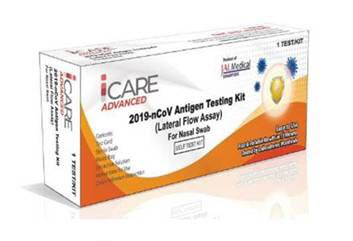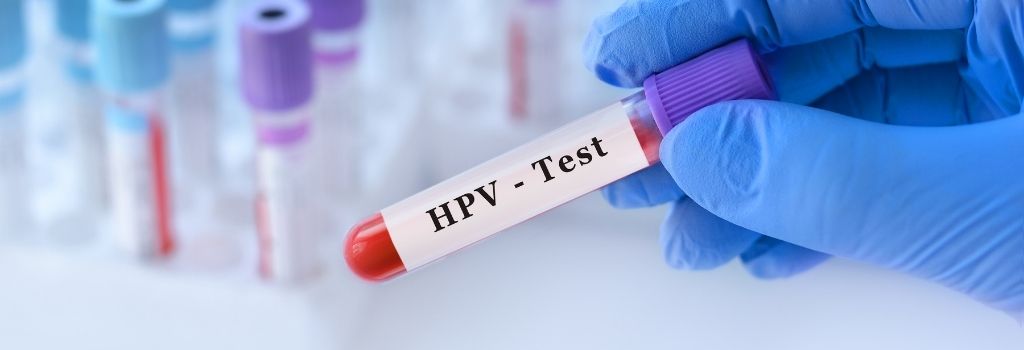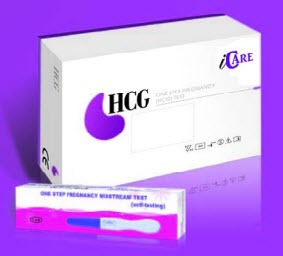Antigua and Barbuda, a dual-island nation in the Caribbean known for its natural beauty and thriving tourism industry, is equally dedicated to safeguarding public health. Across cities like St. John’s, All Saints, Liberta, and Codrington, access to rapid testing solutions for conditions such as COVID-19, HPV, and malaria, as well as screenings for pregnancy and drug use, plays a crucial role in maintaining public safety and preventing disease transmission. Given the diversity of health needs on the islands, the availability of rapid test kits empowers residents with quick, accurate results and helps reduce the strain on the healthcare system. This article explores how rapid test kits for COVID-19, HPV, malaria, and other health conditions contribute to public health across Antigua and Barbuda, emphasizing the benefits of preventive screening in the nation’s major cities and remote areas.
Preventive Health in Antigua and Barbuda: An Overview
Antigua and Barbuda’s public health strategy focuses on proactive screening and prevention to protect the population from diseases and promote early intervention. With tourism as a vital part of the economy, there is a strong emphasis on maintaining a safe and healthy environment for residents and visitors alike. The accessibility of rapid test kits for infectious diseases, reproductive health, and substance use allows health authorities to respond to potential health threats efficiently, providing individuals with reliable diagnostic tools and supporting public health awareness across the islands.
Across Antigua and Barbuda, access to essential health screenings in both urban centers like St. John’s and smaller towns such as Parham and Bolans is critical to ensuring that all residents have equitable healthcare access. Rapid test kits, which deliver results in minutes, are particularly valuable in resource-limited areas, where laboratory services may not be readily available. Through these tests, residents are empowered to make informed decisions about their health, fostering a culture of early detection and prevention that supports the nation’s overall well-being.
COVID-19 Test Kits: Protecting Public Health in a Tourist-Dependent Nation
The COVID-19 pandemic underscored the importance of accessible testing for public health management, particularly in nations like Antigua and Barbuda, where tourism is a primary economic driver. COVID-19 test kits are essential for identifying cases early, allowing health officials to isolate affected individuals and prevent further transmission. Rapid COVID-19 testing enables the islands to maintain a safe environment for both residents and visitors, ensuring that public health protocols are enforced effectively.
In Antigua’s capital, St. John’s, which experiences a high influx of tourists, COVID-19 test kits are widely used in healthcare facilities, airports, and hotels. The ability to provide immediate testing results supports Antigua and Barbuda’s tourism industry by reducing the risk of COVID-19 outbreaks, which could lead to restrictions and impact visitor numbers. For residents in more remote communities, such as those on the smaller island of Barbuda, COVID-19 rapid test kits reduce the need for travel to centralized health facilities, ensuring that all residents can monitor their health status conveniently.
This level of accessibility is crucial for maintaining public health during peak tourist seasons when the islands welcome thousands of international visitors. By prioritizing COVID-19 testing in both urban and rural settings, Antigua and Barbuda demonstrate a commitment to community health and economic resilience.

HPV Antigen Test: Prioritizing Women’s Health and Cancer Prevention
Human Papillomavirus (HPV) is one of the most common sexually transmitted infections globally, and it can lead to cervical cancer in women if left untreated. The HPV antigen test is a valuable tool in Antigua and Barbuda’s public health strategy, providing women with the means to detect HPV early and take preventive action. Early HPV detection allows for timely intervention, reducing the risk of cervical cancer and supporting women’s reproductive health.
In densely populated areas such as All Saints and Liberta, healthcare facilities and community health centers offer HPV testing as part of regular reproductive health screenings. This accessibility encourages women to participate in preventative health practices, which are essential for early detection and treatment. By making HPV testing widely available, Antigua and Barbuda are empowering women to take control of their health and fostering a proactive approach to cancer prevention.
For women in smaller communities, the HPV antigen test kit provides a convenient alternative to extensive lab testing, which may not be feasible in remote areas. Through mobile health clinics and local health initiatives, the government ensures that HPV testing is accessible to women across the islands, promoting health equity and supporting long-term disease prevention efforts.

Malaria Rapid Test Kit: Protecting Public Health from a Mosquito-Borne Threat
Although malaria transmission in Antigua and Barbuda is not widespread, the presence of mosquitos on the islands means that vigilance is essential, particularly with visitors from regions where malaria is more prevalent. The malaria rapid test kit allows for quick detection, enabling healthcare providers to address potential cases immediately and prevent local transmission. These kits are particularly useful in tourist areas and coastal cities, where visitors from various parts of the world may inadvertently introduce new infections.
In cities like St. John’s, where tourism is concentrated, malaria rapid test kits serve as a safeguard against potential outbreaks. For smaller towns, including Parham and Falmouth, the availability of malaria test kits in health clinics and community centers allows residents and visitors to confirm their health status quickly, reducing the chances of undiagnosed cases. This proactive approach to malaria testing helps maintain public health security across Antigua and Barbuda, supporting both local residents and the tourism industry.

HCG Pregnancy Test Kit: Supporting Maternal Health Through Early Detection
Pregnancy monitoring is a crucial component of women’s health, and the HCG pregnancy test kit offers an accessible solution for early pregnancy detection. This test detects human chorionic gonadotropin (HCG), a hormone produced during pregnancy, allowing women to confirm pregnancy and seek prenatal care early. Early pregnancy detection is essential for healthy maternal outcomes, as it enables healthcare providers to offer timely guidance and support for expectant mothers.
In Saint Lucia, HCG pregnancy test kits are widely available at health clinics in cities like Castries, Soufrière, and Vieux Fort. For women in more rural areas such as Micoud and Anse La Raye, these kits offer a reliable and convenient way to confirm pregnancy without the need for extensive lab testing. By empowering women to manage their reproductive health proactively, Saint Lucia’s healthcare system contributes to better maternal and infant health outcomes across the island.

COVID-19 Test Kits: Maintaining Vigilance and Public Safety
The COVID-19 pandemic highlighted the importance of accessible testing for public health safety. In Saint Lucia, COVID-19 test kits remain a key tool for monitoring and controlling virus spread, particularly in high-traffic areas and tourism hubs. Rapid COVID-19 testing provides quick results, allowing individuals to take immediate action to prevent the spread of the virus.
Castries, as the capital and a major tourist destination, sees a high volume of COVID-19 testing, particularly in settings such as airports, hotels, and healthcare facilities. By offering COVID-19 test kits in cities across Saint Lucia, the healthcare system maintains vigilance and ensures that both residents and visitors are protected. This rapid testing infrastructure has been essential for managing outbreaks and preserving public health throughout the pandemic, demonstrating the critical role of diagnostics in maintaining community well-being.
HIV Ag Ab Test Kit: Combating HIV with Accessible Screening
HIV remains a global public health issue, and Antigua and Barbuda have implemented comprehensive measures to combat its spread. The HIV Ag Ab test kit, which detects both HIV antigens and antibodies, is a crucial tool in the country’s efforts to reduce transmission rates and support early intervention. Quick and accessible HIV testing enables healthcare providers to identify cases promptly, allowing individuals to access treatment earlier and reduce the risk of further spread.
In major cities like St. John’s, the HIV Ag Ab test kit is available at numerous clinics and community health centers, encouraging residents to participate in regular screenings. This accessibility helps reduce the stigma associated with HIV testing and encourages a culture of proactive health monitoring. For residents in smaller towns, such as All Saints and Liberta, the availability of rapid HIV testing at local clinics ensures that all citizens have access to these essential services. Through targeted health campaigns and easy access to testing, Antigua and Barbuda strive to improve HIV awareness, reduce stigma, and support individuals living with the virus.

Multi-Drug Screening Test: Addressing Substance Abuse and Community Health
Substance abuse is a complex issue that can impact public health, safety, and social well-being. Antigua and Barbuda address this challenge by implementing multi-drug screening tests, which can quickly detect various substances. These rapid drug tests are valuable tools for community health centers, workplaces, and law enforcement agencies, helping to identify substance use patterns, facilitate early intervention, and provide support services where needed.
St. John’s, as the largest urban center, has implemented these tests in various settings, from health clinics to workplaces, to encourage a healthy, drug-free community. For smaller communities, including Bolans and Parham, multi-drug screening tests are accessible in local health facilities, supporting a decentralized approach to substance use monitoring. By identifying and addressing substance abuse early, the healthcare system in Antigua and Barbuda aims to reduce the social and health consequences of drug use, promoting a safer and healthier community overall.
Building a Strong Public Health Framework with Rapid Testing Access
Rapid test kits for COVID-19, HPV, malaria, HIV, and other health conditions are instrumental in Antigua and Barbuda’s efforts to strengthen public health infrastructure and make health screenings accessible across all cities and communities. By adopting a decentralized approach to diagnostics, the government is ensuring that residents from every part of the country can access essential health screenings conveniently and affordably.
In densely populated areas like St. John’s, rapid testing allows for high-volume screening, supporting timely detection and treatment. In smaller communities, from Codrington on Barbuda to Falmouth and beyond, the availability of rapid test kits at local clinics and health outreach programs promotes health equity and enables residents to take charge of their health. This commitment to accessible healthcare is crucial in a nation where geographic and economic barriers can impact access to medical services.
The proactive distribution of rapid test kits not only helps prevent the spread of infectious diseases but also fosters a health-conscious culture. By raising awareness about the importance of regular screenings for conditions such as HIV, HPV, and substance use, the government supports public health education and encourages individuals to take a preventative approach to their health. The involvement of local communities in health education efforts further reinforces the importance of early detection and intervention.
Promoting Health Awareness and Community Engagement
In addition to providing diagnostic tools, Antigua and Barbuda emphasize health education and community engagement as essential components of public health. Through partnerships with local organizations, healthcare providers, and educational institutions, the government promotes awareness about common health risks and encourages residents to take advantage of available screening services. Community health events and informational campaigns offer resources on topics such as safe sexual practices, substance abuse prevention, and the importance of vaccination.
In cities like St. John’s and rural areas alike, these initiatives help reduce stigma and encourage residents to participate in regular health screenings. Health education initiatives empower residents to make informed decisions about their health, reinforcing the value of early detection and preventive care. By combining rapid testing accessibility with health awareness programs, Antigua and Barbuda are creating a supportive environment that promotes long-term wellness.
Conclusion: A Healthier Future for Antigua and Barbuda
Antigua and Barbuda’s commitment to public health is evident in its proactive use of rapid test kits across a range of health areas, from infectious disease prevention to reproductive health and substance abuse monitoring. By making rapid diagnostic tools available in cities, towns, and rural communities alike, the government has created a comprehensive healthcare framework that supports early intervention and reduces the risk of disease transmission. This focus on preventive screening enhances health outcomes for residents and supports the well-being of visitors, reinforcing Antigua and Barbuda’s reputation as a safe and health-conscious destination.
With the continued implementation of rapid test kits, alongside community health programs and educational outreach, Antigua and Barbuda are setting a strong example for preventive healthcare in the Caribbean region. The availability of essential health screenings in every part of the country ensures that individuals can access the care they need, empowering them to take an active role in their health and contributing to a resilient, healthier society.

